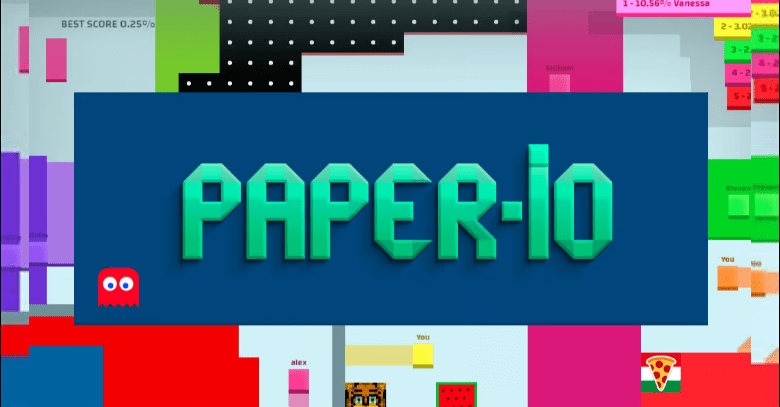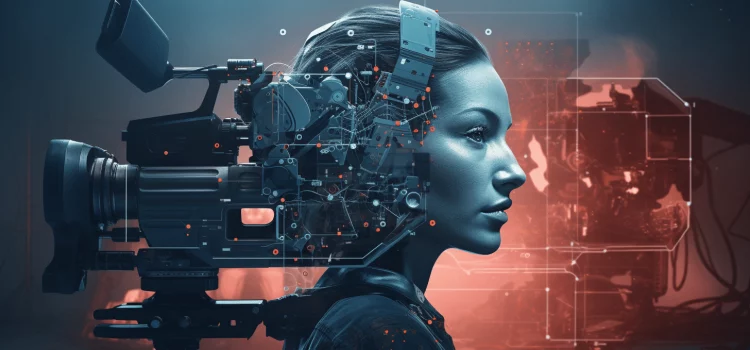
Introduction
The film industry has always been at the forefront of technological innovation. From the advent of sound and color to the introduction of digital effects and CGI, each new technology has expanded the boundaries of what is possible in filmmaking. Today, AI is the latest technological frontier, promising to further revolutionize the industry. AI Film Production involves the use of advanced algorithms and machine learning techniques to automate and enhance various aspects of the filmmaking process.
AI in Pre-Production
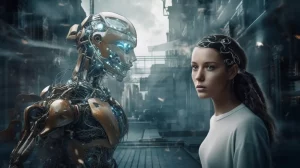
-
Scriptwriting and Story boarding
One of the earliest stages of film production is scriptwriting. AI algorithms can analyze vast amounts of data from existing scripts and suggest plot structures, character arcs, and dialogue. Tools like Script Book use AI to predict the commercial success of a script by analyzing its narrative elements. This allows filmmakers to make data-driven decisions before investing in a project.
Storyboarding, another crucial pre-production step, has also seen advancements through AI. AI-powered software can generate storyboards automatically based on the script, providing a visual representation of scenes and camera angles. This not only saves time but also helps directors and cinematographers visualize the film more effectively.
-
Casting
AI is also making its mark in the casting process. Traditional casting involves sifting through hundreds or even thousands of auditions, a time-consuming and labor-intensive task. AI can streamline this process by analyzing audition tapes and identifying the best candidates based on specific criteria. Companies like Cast.AI use machine learning algorithms to match actors with roles, considering factors such as acting style, appearance, and past performances.
AI in Production
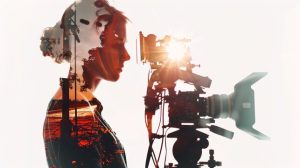
-
Cinematography
AI is transforming cinematography by enhancing camera work and lighting. AI-powered cameras can automatically adjust settings such as focus, exposure, and white balance in real-time, ensuring optimal image quality. Drones equipped with AI can capture complex aerial shots that would be difficult or impossible to achieve with traditional methods.
Moreover, AI can assist in virtual production, where real-time rendering and augmented reality are used to create immersive environments. This technique, popularized by shows like “The Mandalorian,” allows filmmakers to visualize and adjust scenes on the fly, reducing the need for costly re-shoots and post-production adjustments.
-
Sound and Music
Sound design and music composition are crucial elements of film production. AI tools can analyze the emotional tone of a scene and suggest appropriate sound effects and music tracks. For instance, platforms like Amper Music use AI to compose original music tailored to specific scenes, providing filmmakers with a cost-effective alternative to hiring composers.
AI in Post-Production
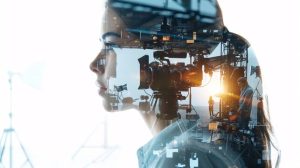
-
Editing
Film editing is one of the most time-consuming aspects of filmmaking. AI-powered editing software can automate many of the repetitive tasks involved, such as sorting through footage, identifying the best takes, and assembling rough cuts. Adobe’s Sensei and Blackmagic Design’s DaVinci Resolve are examples of editing platforms that incorporate AI to enhance efficiency and creativity.
AI can also assist in color grading, a process that involves adjusting the colors and tones of a film to achieve a specific look. AI algorithms can analyze reference images and apply similar color grading to the film, ensuring consistency and saving time.
-
Visual Effects
Visual effects (VFX) are a cornerstone of modern filmmaking. AI is revolutionizing VFX by automating complex tasks such as rotoscoping, compositing, and 3D modeling. AI-powered tools can track objects and characters in a scene, allowing for seamless integration of CGI elements. This not only speeds up the VFX process but also reduces costs.
Deepfake technology, which uses AI to create realistic digital representations of actors, is another area where AI is making significant strides. While controversial, this technology has potential applications in de-aging actors, creating digital doubles, and even resurrecting deceased performers.
Benefits of AI in Film Production
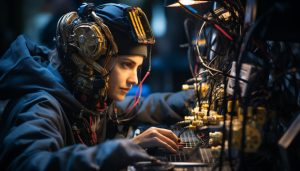
-
Efficiency and Cost-Effectiveness
One of the most significant benefits of AI in film production is increased efficiency. By automating repetitive tasks, AI allows filmmakers to focus on the creative aspects of their work. This not only speeds up the production process but also reduces costs, making filmmaking more accessible to independent creators and smaller studios.
-
Enhanced Creativity
AI tools provide filmmakers with new creative possibilities. From generating story ideas to composing music, AI can augment human creativity and inspire new artistic directions. By handling the technical and logistical aspects of production, AI frees filmmakers to experiment and innovate.
-
Data-Driven Decision Making
AI enables data-driven decision making at every stage of production. By analyzing audience preferences, market trends, and script elements, AI can help filmmakers make informed choices that increase the likelihood of commercial success. This is particularly valuable in an industry where financial risk is high.
Challenges and Ethical Considerations
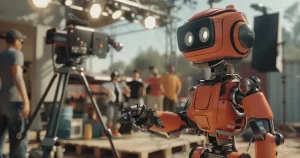
-
Quality and Authenticity
While AI offers many benefits, there are concerns about the quality and authenticity of AI-generated content. Critics argue that reliance on AI could lead to formulaic and homogenized films, lacking the unique touch of human creativity. Ensuring that AI enhances rather than replaces human artistry is a key challenge.
-
Ethical Concerns
The use of AI in film production raises several ethical issues. Deepfake technology, for example, has the potential for misuse, such as creating fake news or unauthorized digital representations of individuals. Ensuring ethical use of AI and protecting intellectual property rights are critical considerations.
-
Job Displacement
The automation of tasks traditionally performed by humans raises concerns about job displacement in the film industry. While AI creates new opportunities, it also threatens certain roles, particularly in areas like editing and VFX. Addressing the impact on employment and providing retraining opportunities for affected workers is essential.
Future Prospects
The integration of AI in film production is still in its early stages, and its full potential is yet to be realized. As AI technology continues to evolve, we can expect even more sophisticated tools and applications. Virtual reality (VR) and augmented reality (AR) are emerging as new frontiers, with AI playing a crucial role in creating immersive and interactive experiences.
Moreover, AI’s ability to analyze and predict audience preferences will become increasingly valuable in an era of streaming and on-demand content. Personalized recommendations and targeted marketing will help filmmakers reach their audiences more effectively.
Conclusion
AI is undeniably transforming the landscape of film editing and production. From streamlining pre-production tasks to enhancing post-production processes, AI offers numerous benefits that can enhance creativity, efficiency, and decision-making in the film industry. However, it also presents challenges and ethical considerations that must be addressed to ensure its responsible and beneficial use.
As AI technology continues to advance, its impact on film production will only grow, offering exciting possibilities for filmmakers and audiences alike. By embracing AI while remaining mindful of its implications, the film industry can continue to innovate and captivate audiences in new and imaginative ways.


